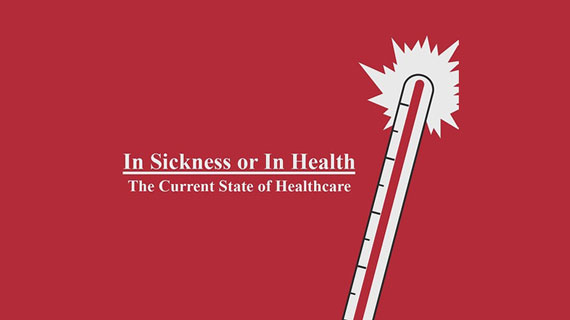Pizza & Politics- The Opioid Epidemic
Posted: October 03, 2017 | Author: Miles Anderson | Read Time: 3 minutes
 The Michael O. Leavitt Center for Politics and Public Service hosts Pizza & Politics every Wednesday at noon to discuss a current political topic. Leavitt Center student employees research the topic and moderate the conversation. These discussions expose students to a variety of important issues and encourages them to share their own perspectives while learning all sides of an issue. Free pizza is provided for all who attend.
The Michael O. Leavitt Center for Politics and Public Service hosts Pizza & Politics every Wednesday at noon to discuss a current political topic. Leavitt Center student employees research the topic and moderate the conversation. These discussions expose students to a variety of important issues and encourages them to share their own perspectives while learning all sides of an issue. Free pizza is provided for all who attend.
President Donald Trump recently proclaimed a national crisis on opioid abuse and drug overdose deaths. To shed light on this important issue, moderators Abdikadir Eftin, a senior political science and communications major, and Shelese Stoddard, a junior political science major, chose to focus on opioid use for Pizza and Politics in order to educate students on the rising rate of overdose deaths in the United States.
According to the Center for Disease Control, 91 Americans die everyday from opioid overdose and Utah ranks #4 nationally for drug overdose deaths.
These are a few of the questions that were posed to the audience throughout the course of the discussion:
Does responsibility for the opioid crisis lie more with medical professionals or patients?
This question received several responses on both sides of the issue but the dominating opinion seemed to be that the responsibility lies more with the patient than the medical professional, stating that doctors can’t monitor patients every minute of everyday to make sure they aren’t misusing their opioid prescription. It ultimately comes down to the individual's choice to use or abuse that medication.
The comment was also made that the responsibility lies with both the doctor and the patient, but in different ways. The patient has a responsibility to keep themselves safe and to use the drug responsibly, but the medical professionals also have a responsibility to closely monitor the prescriptions they do give out in order to ensure there is not an excessive amount of opioids in circulation that have the potential to be abused. Medical professionals have much more of an opportunity to effect systemic change than individuals do.
Is the opioid epidemic more of a criminal issue, or a mental/physical health issue?
Responses to this question were almost exclusively on the side of the problem being a mental health issue. The DSM V - the gold-standard for diagnosing mental health disorders - puts those with addictions in the category of having an addictive disorder. The presence of addiction in the DSM V is evidence of society's evolving view of those suffering from addictions.
Several comments focused on the negative impacts of sending someone with an addiction into jail or prison instead of treatment. Some of those impacts include increased rates of recidivism, further decline in mental health to the point of developing additional mental disorders, and increased cost to society to house drug offenders in already overcrowded jails and prisons.
Are methadone clinics an effective form of treatment for opioid addiction?
Methadone clinics are facilities that utilize methadone, an opioid medication that trained professionals can use to lessen symptoms of opiate withdrawal.
Opinions varied on this topic with some supporting the use of methadone as a method of rehabilitation, and others expressing a fear of methadone being used to replace an addiction rather than overcoming it. There is also some abuse potential with methadone as a high dose can still lead to an overdose. Despite the effectiveness of the practice, it still comes with certain risks.
Solutions
Several possible solutions to the opioid epidemic were discussed to close the discussion including methadone clinics, training law enforcement how to help people who are overdosing, mandatory health education on opioids, nationwide prescribing standards for opioids, and declaring the opioid epidemic a national emergency to access additional funding from the Federal Emergency Management Agency (FEMA).
This article was published more than 3 years ago and might contain outdated information or broken links. As a result, its accuracy cannot be guaranteed.
Tags: Blog Leavitt Center




